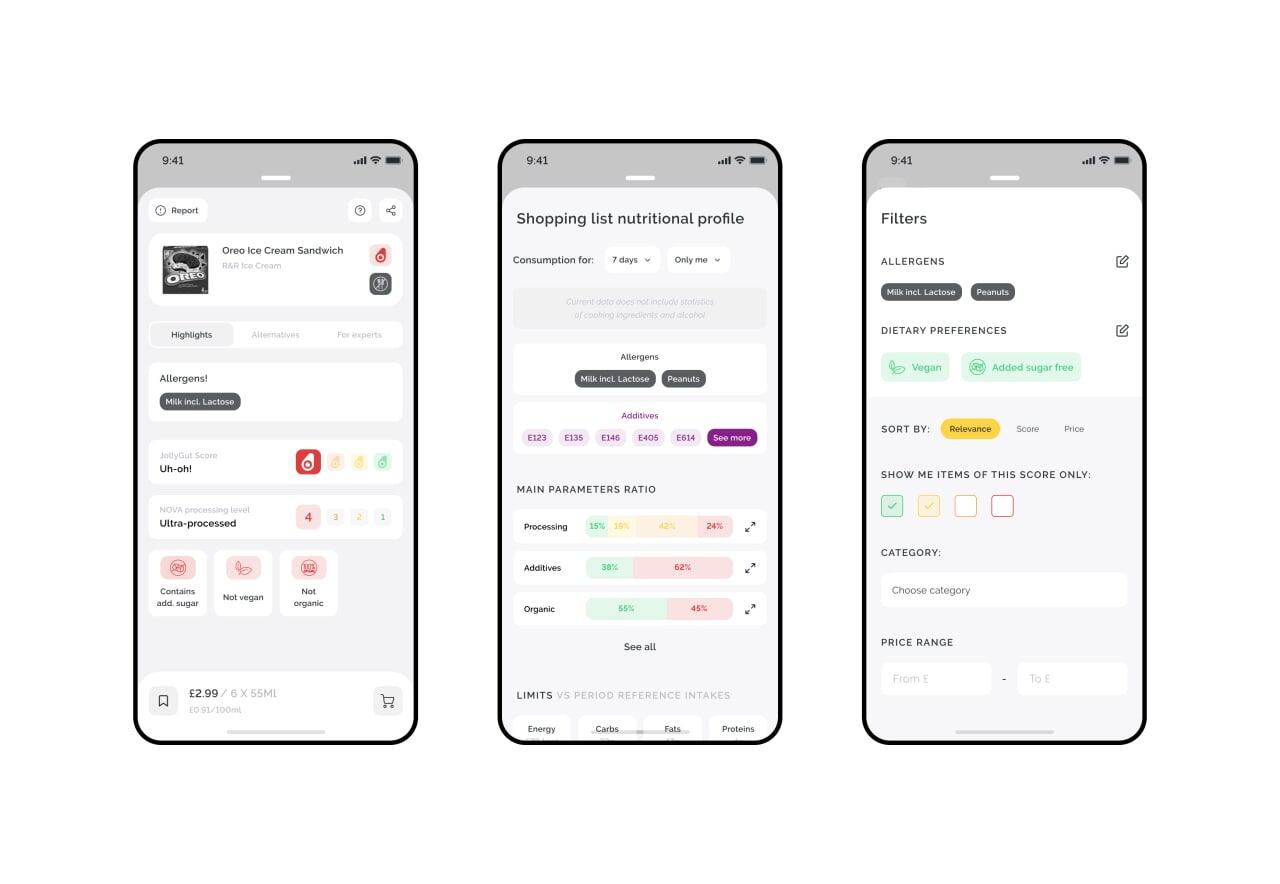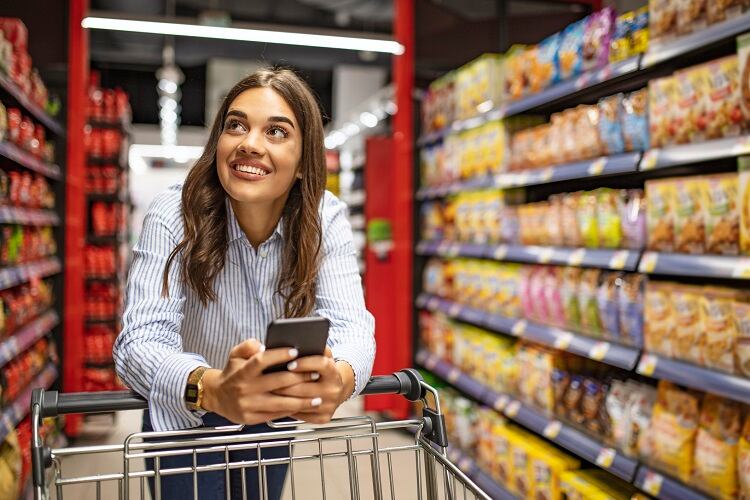While the importance of a good diet is well acknowledged by academics, food players, and policymakers alike, translating nutritional information to consumers can be a challenge.
Nutrition labels (such as Nutri-Score and the Traffic Light scheme) and smartphone apps (including Yuka and Siga) aim to help make the healthy choice the easy choice for consumers.
However, a new smart food scanner launching on the UK market believes it can be made easier still. “We are looking to reinvent the food shopping experience, that’s our long-term ambition,” JollyGut CMO Dmitry Dubovik told FoodNavigator.
Navigating the retail jungle
JollyGut was developed by tech company 100Nuts in response to concern for consumer health in the UK.
According to 2018 figures, the majority of adults in England are overweight or obese (63%), with morbid obesity steadily on the rise. At the same time, the number of people with food allergies is increasing, with about 7% of children affected in the UK. In Europe, it is estimated that 2% of adults have food allergies.
“Nutrition is the fundamental issue,” said Dubovik. “Yet it can be quite complex for people to understand. There is too much information out there for the regular customer, and retailers and brands are not really helping us find the food that is actually good for us.
“The shelves are full of different kinds of products, like jungles that we spend hours navigating.”
JollyGut takes particular issue with online shopping – a sector that has observed unprecedented demand during the COVID-19 pandemic.
Retail e-commerce ‘hasn’t changed much’ in the last 20 years, lamented Dubovic. “It is pretty much the same as offline shopping. You have the same aisles, the same shelves, you can get just as lost there as you can in-store.”
JollyGut’s solution, which aims to ‘help consumers at the shopping basket level’, simplifies and customises this process, the CMO explained.
Customised shopping
JollyGut has digitised 70% of UK supermarkets and is working with packaged foods sold in Tesco, Sainsbury’s and Morrisons. Ocado and Waitrose will be ‘added shortly’.
When shopping at these supermarkets, JollyGut’s technology customises the experience for consumers. The products available account for the consumer’s allergies, dietary preferences, and food choices – for example, whether the consumer wants to purchase recyclable-only products or avoid items that are highly-processed.
The app can also automatically generate grocery carts for consumers based on their nutritional preferences and budget. “Our ambition is that consumers will look at the [automatically generated] cart and say: ‘I wouldn’t do it better. That’s the cart I need’.”
In doing so, JollyGut hopes to ‘put supermarkets in competition’ to deliver better options to consumers. By offering ‘healthier’ alternative food choices, the app hopes brands will reduce the amount of fat, salt and sugar in their products, opt for minimal processing, and reduce their use of additives. “We want them to change their behaviour to be able to deliver better food for consumers,” said Dubovik.

Aside from the smartphone app, JollyGut has also developed a web browser extension that consumers can install prior to ordering food from retailers online. If a consumer is gluten intolerant, for example, only gluten-free products will be made available for purchase. The same would apply for consumers with preferences for vegan or vegetarian diets, the CMO elaborated.
COVID-safe scanning
JollyGut also claims its technology can help reduce the spread of coronavirus while shopping in the supermarket.
“It’s needless to say that people tend to touch food packages to get more info about the product prior to buying it. All the mobile apps that require the scanning of barcodes are actually fuelling the pandemic as it encourages consumers to handle lots of products and check them one-by-one,” noted the company.
JollyGut, on the other hand, uses visual recognition technology that does not require shoppers to touch product packaging.
“We take images of all food inventories in supermarket chains and then simulate the position of each package,” JollyGut’s CMO explained. “We turn the package and obstruct them with other items. We try to simulate different positionings of the packaging on-shelf so that it will be recognisable on the app.”
The result is that 99% of the time JollyGut recognises the product scanned. “The mobile app we’ve developed is a risk-free shopping solution…that scans products from a safe distance,” the start-up elaborated.
The long-term plan
The current smartphone app is just a fraction of what JollyGut has in its long-term pipeline. In the future, the start-up wants to become ‘an Amazon for food’.
This means that it plans to integrate with other service producers, for example food delivery operators and restaurant choice platforms. Consumers would no longer need to trawl takeaway options for meals that suit their dietary preferences, the CMO explained. The app would automatically suggest a local restaurant that satisfies the consumer’s food preferences and if the consumer opted for delivery, they would also be able to order via the app.
Concerning future expansion, JollyGut has its eyes set on English speaking markets. Having now launched in the UK, next up is the US, Dubovik revealed. Ireland, Australia, and New Zealand are pipped to follow next, before the start-up expands further into Europe.
And in terms of monetisation, the app will ask consumers to pay a subscription for its services in the future. “We are not looking to monetise within the next year,” we were told. “But later on, as we expand into food delivery, restaurant selection, offer nutrition tracking services and link with smartwatches to track consumer calories, we plan to monetise the subscription.
“That would help [the app] expand to navigate any food touchpoint consumers have in their lives.”


